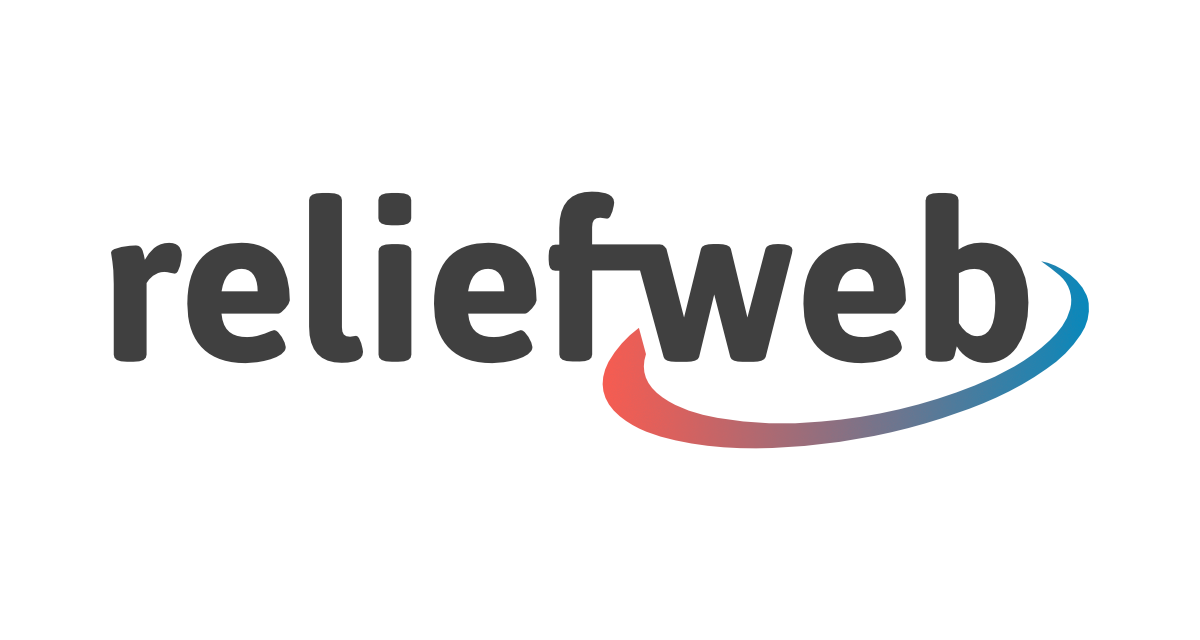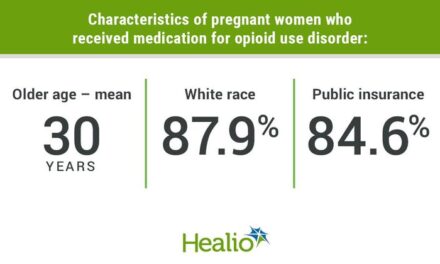
Who We Are
Girl Effect is an international non-profit that builds media that girls want, trust and need. From chatbots to chat shows and TV dramas to tech, our content helps adolescent girls in Africa and Asia make choices and changes in their lives. We create safe spaces for girls, sharing facts and answering questions about health, nutrition, education, and relationships, empowering girls with the skills to negotiate and redefine what they are told is possible “for a girl”.
Our reach is 50 million and counting. And we’re using technology to reach girls at scale so every girl can choose to be in control of her body, health, learning and livelihood.
Because when a girl unlocks her power to make different choices that change her life, it inspires others to do so too. She starts a ripple effect that impacts her family, community, and country.
That’s the Girl Effect.
The Program
Girl Effect, in partnership with Gavi, the vaccine alliance, has embarked on a 4-year program aimed at improving the health of children, adolescents, and women by increasing demand for and uptake of vaccines in three regions, with a particular focus on girls 9-14 years before eligibility for the HPV vaccine and those (up to 29 years old) who are pregnant or caregivers of children below the age of two.
- Phase I: Identify and understand key barriers to vaccine uptake, with particular emphasis on gender-related barriers, that 13 – 29-year-olds face around
i) understanding the need for and importance of vaccines immunisation and HPV),
ii) vaccine uptake and health decision-making behaviour (childhood vaccinations and HPV),
iii) gaining knowledge and confidence to use available health services for vaccinations
- Phase II: Use findings from the research into barriers to create and deploy specific and demand-generating strategies to increase awareness of health issues and increase in vaccination rates (childhood vaccinations and HPV) in target locations.
- Phase III: Analyse program results and disseminate learnings within the sector (with MoH and other partners) to ensure tools are appropriately devolved for sustained use and utilised by a wide range of service providers and community groups, including those in the humanitarian sector.
The program is primarily targeting zero-dose and under-vaccinated areas of the country mainly characterised by lack of inadequate access to basic health and information services. The traditional reach of GE’s media focused work has mainly been urban and semi-urban areas with better access to media, which is the opposite of the current programming.
Nine woredas total across three regions—Amhara, Somali, and SNNP—will be covered by the ground activation.
- Amhara– Dehana, Simada and Debark
- Somali– Galadi, Warder and Erer
- South Ethiopia– Segen Zuria, Burji and Derashe
A school program in 45 schools (5 in each woreda) and community discussions led by HEWs and/or community health workers (CHWs) are among the product mix for the ground activation. In addition to the on-the-ground programming, GE will have an ecosystem of products that complements individual level discussions through targeted and tailored digital products that will be produced using local insights and disseminated through selected accessible outlets such as local radio and TV stations, apps and/or through individual phones.
Progress to date
Phase I: Completed
We have researched the barriers to vaccine uptake in the selected regions in Ethiopia and have developed and tested low-fidelity prototypes.
Phase II: On-going
. Based on the insights gathered, we have developed a product mix that spans across mainstream media, social media and direct on-ground intervention to increase:
- Uptake of HPV Vaccine for 9- 14-year-old girls in target areas with specific populations
- Uptake of Routine Immunisation (RI) for 0–2-year-old children of AGYW caregivers in target populations (Young Mothers and Fathers: 15 – 29 years)
- The practice of Positive Health Seeking Behaviours
The Approach
a. Television/Radio series: Using its brand Yegna alongside local influencers, GE will produce girl-centred content that resonates among girls and young caregivers to shift knowledge, attitude and perception around vaccine (HPV & RI) uptake by addressing key behavioural determinants.
b. Building a Champions’ App for HEWs and CHWs: GE is creating an app for HEWs/CHWs to lead community discussions with interactive SBC content. The app will play a significant role in the on-the-ground mobilisation, and the implementing partner is in charge of disseminating it among its volunteer HEWs and CHWs.
c. On-ground engagements through local partners: GE will work with local partners to conduct on-ground activations and engagements. The engagement of the local partner will be as follows:
- Local implementing partner (NG) will be selected (1 per region) to run the on-the-ground mobilisation in the indicated woredas.
- The on-the-ground implementation will have two wings- RI and HPV
- 4-6 weeks In-school engagement (as per the HPV campaign schedule) targeting 9-14 year girls and boys with HPV messaging
- 4-6 weeks of community mobilization on HPV, especially targeting 9-14 years out of school and their caregivers.
- A year-long community mobilization for RI targeting young caregivers between the ages of 15-29
- The local partner will employ a robust monitoring and data tracking system to ensure deliverables are well met and lessons are continuously drawn from the on-the-ground implementation.
- Girl Effect provides the necessary SBC messaging/contents, discussion guides, supporting media products and/or print materials to support community mobilisation.
- Girl Effect will support the local NGO to set up a robust monitoring framework, analyse findings from the reports and support in documenting learnings of the community mobilisation through its Tech Enabled Girl Ambassadors (TEGA) and other identified approaches.
The Scope
The role of the Local Implementing Partner is crucial; a trusted, committed and flexible partner passionate about empowering girls and women will be the ideal partner for the intended scope of engagement.
Accordingly, the selected Local Partner will lead the on-the-ground community mobilisation in the selected target woredas, running the in-school and community interventions for RI and HPV demand generation interventions and approaches. The following are some of the necessary components of the anticipated partnership but are not exhaustive;
- Cultural Scoping and Community Engagement:
The local partner needs good local government/leadership and facilitates any necessary permissions to run the community intervention in the woredas. (Having a currently running project is an added advantage.)
The Local Partner will be responsible for identifying local adaptations to the anticipated on-the-ground community work by providing tailored strategies and a list of activities that are proven to work in the locations.
- Recruitment of HEWs/CHWs and schools :
The local partners will be responsible for recruiting, training, deploying and following up on HEWs/CHWs in the indicated woredas. Moreover, there will be a school program that runs for 6 weeks during the HPV vaccine rollout timelines. The local partner will select the schools, recruit and train focal persons and follow up on the implementation of the school program and provide any assistance during the implementation.
Girl Effect will support the recruitment process by providing job descriptions, recruitment criteria, and quality assurance through the selection process. Moreover, Girl Effect will help the local partner in providing the training and provide SBC-tailored content throughout the implementation.
The Local Partner will provide woreda facilitators to support the HEWs/CHWs and the school program and provide the necessary follow-up for the smooth implementation of the project.
Girl Effect will take a ‘train the trainer’ approach to equip the Local Partner with the knowledge and skills required to run SBC-driven community mobilization.
- Running Community Discussions/Mobilization:
The Local Partner will be responsible for designing and running community discussions with target communities. The partner will suggest effective ways to mobilize the community using the HEWs/CHWs and other key influential community members to advance vaccine knowledge and acceptance. Girl Effect will provide guidance on the target, suggest ways and provide SBC messaging based on identified targets.
- Running the School Program
The partner will be in charge of selecting 5 schools per woreda for the school programme, which will run 4-6 weeks before the HPV vaccine campaign period. The partner will recruit and train school facilitators to deliver school content to their students. Girl Effect will provide guidance on the program’s structure and during the training of the school program facilitators. Furthermore, during the campaign period, the partner will provide follow-up for the focal persons in the school to effectively run the contents through mini-media and Girl Ambassadors.
- Monitoring and Reporting:
The local partner is required to provide an effective data capturing, reporting and monitoring design as part of its proposal and demonstrate strong organizational capacity to undertake the task. Girl Effect will provide guidance and assist on the indicators and overall reporting timelines, and the necessary documentation required.
The Local Partner will ensure safety by building a safety code of conduct across its work ethics, including safeguarding young people during the implementation of the project. Staff working directly with children or who will have access to children’s personal data will receive training on safeguarding and Girl Effect’s minimum requirements for safe conduct. Girl Effect and the Local Partner will work collaboratively to ensure the correct safeguarding policy is in place.
- Regional events:
When necessary, the local partner will be required to organise dissemination events to disseminate different information in the region and will serve as a focal point in the regions and specific woredas. Girl Effect will work with the local partner to organise such events.
Proposal Submission
- Produce a technical proposal that highlights the following key areas (max 10 pages)
- Brief organizational overview of your organization (Profile/CV/Credentials)
- Project goal and objectives
- Strategies to be used
- List of activities with a clear description of how the activity will roll out, who it targets, number to be reached (male/female reach), number of times the activity will run
- Output of the suggested activities
- Monitoring and reporting approach with clear description of how the suggested activities will be monitored, how data is captured and documented and reporting timelines.
- Quantitative table that highlights the target as per each suggested activity
- Work plan highlighting timelines of the activities
- Risk Assessment and Mitigation Plan (1-page maximum)
- Additional required documents from Applicants:
- Organization contact details.
- Contacts of three organizations (national/international) with whom you have worked previously who can be contacted for a reference.
- Copies of other registration documents
- Breakdown of Costs provided with applicable taxes and other charges clearly identified in ETB. The breakdown of costs per activity with detailed cost breakdown by units and frequency. Refer to this link to fill in the detailed Budget.
- All applicable taxes should be quoted separately;
Technical and Financial proposals will need to be submitted as separate documents. Financial proposals will not be opened until the conclusion of the technical evaluation and then only for proposals deemed qualified and responsive.
In their technical proposal, the bidder must demonstrate an understanding of the requirements described in the RFP and demonstrate how the bidder will meet the requirements of the evaluation criteria.
GE is not liable for any cost incurred during the award/contract preparation, submission, or negotiation of the award/contract. All submitted documentation and/or materials shall become and remain the property of GE.
Who You Are
Applicant organisations are expected to fulfil the following competencies:
- Demonstrate a good understanding of the target community and have current programs/projects in the region and at least in one of the woredas.
- Have existing community relationships (especially presence/relations in target woreda) to engage with the community or leverage other networks.
- Experience working with and supporting young people, particularly adolescent girls and specific knowledge of gender dynamics at individual, household and community levels.
- Experience in running community mobilization projects, especially with HEWs and CHWs, working with and for young people both in and out of school and health and development related work experience will be an added value.
- Registered as a local NGO with proper regional permits to undertake projects in the woredas mentioned.
Local Implementing Partner Competencies
Applicant organizations are expected to fulfil the following competencies:
- Demonstrate an understanding of Child Protection, Safeguarding and ethical issues in research.
- Have existing community relationships in the regions outlined above and the ability to engage with the community or leverage other networks.
- Experience working with and supporting young people, and particularly adolescent girls, and specific knowledge of gender dynamics at individual, household and community levels.
- Experience conducting research and expertise working with young people/adolescent girls, preferably in the target districts.
- Experience in, and a good understanding of, recruiting respondents for research.
- Experience in fieldwork supervision.
- Ability to report and respond to comments and questions promptly and appropriately.
- Good technology infrastructure (use of email, fast internet connection/wi-fi that ideally allows video conference for meetings and training and laptops that can be updated to the latest version of Chrome).
- Good digital skills (be familiar with web browsers and some experience with using android apps).
Procurement Timelines:
- Terms of reference published: 6th October 2023
- Questions/Clarification Deadline: 13th October 2023
- Deadline for responses: 23rd October
- Partner selection, contracting and briefing: Early December
- Project commencement: December
Expected Commitment
The local implementing partner in Ethiopia will manage the project from December 2023, until November 2024. The contract is subject to renewal upon satisfactory performance and funding availability.
Selection Criteria
The criteria against which proposals will be evaluated are listed below:
Evaluation Criteria
Weighting (Total 100)
Experience working with local communities 10
Organisational Capacities and Reputation
10
Organisational strengths 10
Recruitment 5
Safety 10
Trainer training 5
Locations and geographical footprint 5
Relevant experience working with adolescent girls 5
Technology and digital competency of the organization 5
Work plan and timeline 10
Risk and mitigating measures 5
Value for money 20
Experience working with local communities
- Does the organisation have a proven track record in working with communities and implementing community projects, preferably in the target woredas mentioned in the RFP?
- Does the organisation have existing community relationships, and do they have the ability to engage with the community or leverage other networks?
Organisational capacities
- How strong is the organisation’s capacities in relation to the local implementing partner competencies highlighted in the RFP?
Organisational strengths
- How do the competencies underscored by the organisation strengthen the work that we want to deliver?
Recruitment
- Does the organisation have experience in and/or show a good understanding of implementing a community mobilisation, including working with community leaders, key influencers and young people as part of the process?
- Does the organisation have a clear plan of how it will manage the work activities?
Safety
- Does the organisation have a proven track record in designing, managing and implementing responsive, girl-friendly, and state-of-the-art safeguarding processes in the locations they operate in?
Trainer training
- Does the organisation have previous experience undergoing trainer training and, in turn, training locally recruited team members?
Locations and geographical footprints
- Does the organisation have a presence in the region applied for and some of the target woredas indicated in the RFP?
- Is there any indication that the organisation faces any significant barriers that impinge on its physical accessibility?
- Does the organisation have experience of fieldwork supervision in the target locations or locations suggested by them?
Relevant experience working with adolescent girls
- Does the organisation have a proven track record in working with adolescent girls and implementing projects on adolescent girls?
Technology and digital competency of the organisation
- Does the organisation have good technology infrastructure (use of email, fast internet connection, wi-fi that ideally allows video conferencing for meetings and training and laptops that can be updated to the latest version of Chrome)?
Work Plan and Timeline
- Are the timeline and work plan realistic and suggest both understanding and capacity to deliver against what is required?
Risk and Mitigating measures
- Is the proposed risk matrix comprehensive and demonstrates an understanding of critical challenges/ limitations with mitigation provided?
Value for Money
- Does the financial proposal demonstrate an ability to complete all required work within the given budget with an appropriate timeline?
Tax
Applicants are advised to ensure that they have a clear understanding of their tax position regarding provisions of the Ethiopia jurisdiction tax legislation when developing their proposals.
Disclaimer
GE reserves the right to determine the structure of the process, number of short-listed participants, the right to withdraw from the proposal process, the right to change this timetable at any time without notice and reserves the right to withdraw this tender at any time, without prior notice and without liability to compensate and/or reimburse any party. GE shall inform ONLY successful applicant(s). The process of negotiation and signing of the contract with the successful applicant(s) will follow.
Safeguarding
You may be required to undertake safeguarding checks. Shortlisted local NGOs will be assessed on our organizational values at the interview stage. Successful NGOs will be expected to adhere to our safeguarding policy. We encourage you to read and understand our safeguarding policy, the executive summary of which can be found Here. We have zero-tolerance for all forms of violence against children, beneficiaries and staff.
Equal Opportunities
Girl Effect Services is committed to equal opportunity regardless of race, color, ancestry, religion, sex, national origin, sexual orientation, age, marital status, disability, gender, gender identity or expression. We are proud to be an equal opportunity workplace.
We are committed to building an organization that is increasingly representative of and works extensively with the communities that we serve. To this end, due regard will be paid to procuring consultancy service organizations and individuals with diverse professional, academic and cultural backgrounds.
How to apply
Please submit proposals, as described above, to suppliers@girleffect.org by October 23, 2023, 5:00pm EAT latest. Please clearly mark your email with the subject ‘Ethiopia Local Implementing Partner ’‘. Please also include the region you’re applying for in the email header.
Questions/Clarifications
If you have any questions about this RFP, please email suppliers@girleffect.org by October 13, 2023 4pm EAT latest. All questions will be answered and shared with all agencies that have received the RFP for fairness.





